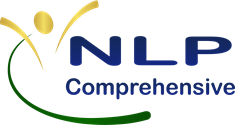by Tracy Hoobyar
I’ve been thinking a bit about NLP and how it has changed my life so massively and I had a thought that I really want to share with you. It’s about NLP, how it’s taught, and what it’s about.
It seems to me that people like me and you want to learn more about NLP so they can change their lives. It’s about getting more of what you want, having more fun, improving your relationships with others and yourself, and feeling and being more successful all around. Does that sound about right? It’s really about learning how to be a better you. A happier you. A more content and successful you.
I know that’s what got me really interested in it in the beginning. I was in a tough place, dealing with my daughter and some pretty serious health issues, and was looking for a way to help save her life as well as a way for me to have a better understanding of my own.
NLP was my solution. It totally changed not only my life, but my family’s life as well. It was, as they say, a total game changer!
And it’s funny. The parts of NLP that changed my life the most are NOT the parts that most of us think about when we think about NLP. It wasn’t the processes or the exciting new THING.
It was the basic premise that made the biggest difference for me. The building blocks of NLP are what have changed my life more than anything else.
I’m referring to the presuppositions. They are the true spine of NLP. The core, if you will. They make up a basic set of understandings that, if truly incorporated into your life, will forever change the way you deal with others and yourself. They will change your relationships with your kids, your outlook on the world, your opinion of yourself. They will reorganize your thought patterns in a way that will be healthier and allow you to be and feel more successful on a daily basis.
Let me share with you my favorite presupposition.
People do the best they can with the resources they have available to them at the time.
You may see this written in a variety of ways with slightly different languaging each time, but they all carry the same meaning. It means people are doing the best they can. Now, I could talk about this for the next several weeks because I feel that this has had such an enormous impact on my life. It’s also had an enormous impact on my family’s life. However, I’ll spare you the bulk of it and just share one example with you.
Let’s say you are talking with someone who is doing the dumbest thing you’ve seen. Say, for instance, they have applied for a job and they are answering questions with the silliest answers ever. They have been complaining to you about wanting to get a job. Maybe they’ve even borrowed some money from you.
Whatever the specifics, they say they want a job, and you want them to get one. But they seem to be sabotaging themselves every step of the way.
Before I really internalized this presupposition I would have likely gotten irritated, probably kept it to myself, made quiet judgments about the person, and it would surely have affected our relationship. I would have let my feelings about their actions change my opinion of the person. Of their character.
Now, imagine knowing that they were doing the best they could. There are a million reasons they could be doing this and really, the specifics don’t matter.
That’s right. They don’t matter.
Here’s why: If I just believe and trust that they are doing the best they can, I can then approach them with way more resources available to me, and I can be of much more help to them in getting what they want.
Imagine instead of my shutting down and being frustrated, if I was able to listen to them. Then imagine I was able to offer some solutions they had not thought of. Now, imagine the ways our interaction would change if I were able to approach them with compassion and understanding, and a shared interest in helping them reach their goal. Can you see how powerful a change this can be?
I look at the presuppositions as the framework, the groundwork, for NLP. Without a solid understanding of these any other work is slightly, if not massively, less powerful.
So now it’s your turn. I would love to hear from you about your thoughts on the presuppositions. Are you familiar with them? Have you studied them or explored them? What’s your favorite presupposition? Which of them do you struggle with understanding? Take a minute and let me know.
We have also put together a quick survey we’d love for you to fill out. It will only take you a minute but it will really help us to offer you something great, for free! We are putting together some free calls for you to join us on and I’d love to learn what you want most. Remember, these calls will be for you, so make them as valuable as possible and let me know what you want to learn about and talk about.
